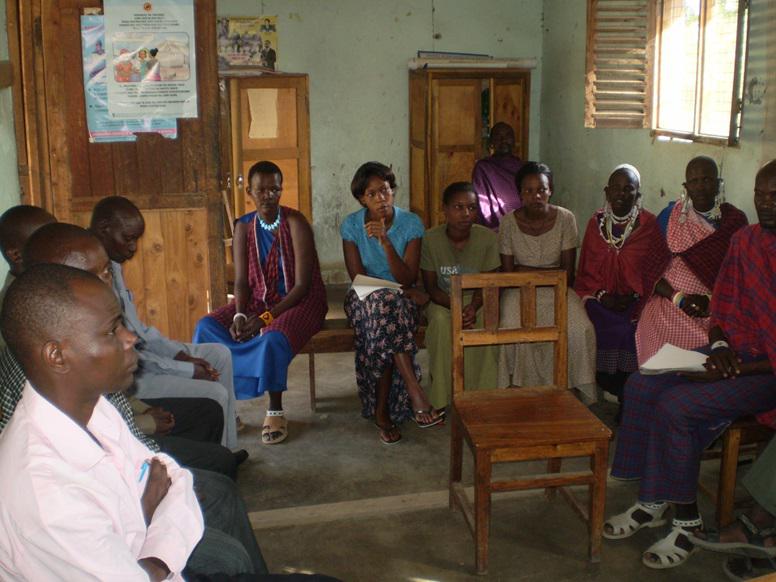Samora Macrice Andrew
Other projects
24 Jun 2008
Mobilizing Local Communities for Conservation and Management of the Threatened Lake Natron Basin, Tanzania I
The project aims to support wetland conservation and the promotion of Maasai livelihoods through education and eco-cultural tourism.

The Inception meeting inside the Engaresero village office, Ngorongoro District.
Wetlands are among the most productive ecosystems of the world. According to the Millennium Ecosystem Assessment, there has been more degradation of ecosystems due to anthropogenic activities especially during the last century and as a result, biodiversity is decreasing while livelihoods of rural communities are jeopardized. Interestingly, wetlands have drawn attention because of their rapid disappearance and ecological importance in offering ecosystem goods and services while supporting people’s livelihoods. Lake Natron is an important Ramsar site and Important Bird Area which harbours unique species of flora and fauna. It is a cross border ecosystem that extends to Kenya.
The nature of the lake makes it significant and successful habitat for regular breeding of lesser Flamingos (Phoeniconaias minor) in E. Africa and account for more than three quarters of the world population. The basin accommodates a lake, rivers, permanent lagoons, soda flats, swamps, and seasonally inundated floodplains, large areas of evergreen grass, woodlands and edaphic grasslands. The wetland resources provide critical livelihood options and environmental incomes to Maasai communities. Overgrazing, conversion of woodlands to agricultural land and illegal use of wildlife are among the major threats to the lake. The global climate change and variability heightens threats to the basin and adds vulnerability to the indigenous communities. During the first phase of the project, attention was paid on raising awareness on wetland dynamics including the importance of sustainable utilization and the consequence of not utilize the wetlands’ resources wisely.
The project provided education to schools and established village environmental committees to spearhead conservation endeavours in the area. The current project is the continuation of the first phase with the purpose of strengthening the established programmes plus provision of alternative livelihood sources through eco-cultural tourism. The off-wetland livelihoods will reduce the dependence of Maasai to wetland resources and encourage them to utilize other available nature endowments. The project will utilize the presence of tourist’s attraction sites in the area. To the south of Lake Natron, exists an active volcanic mountain “Mountain of God” - Ol Donyo Lengai. The area is also a legendary of wild animals, spectacular and unique Flamingos together with rich distinctive culture and recently discovered oldest Homo sapiens footprints attract a good number of tourists.
The project will also attempt to encourage Maasai to establish ranches. It is anticipated that, provisioning of education and optional livelihood sources developments will lead to sustainable livelihoods of Maasai and better conservation of Lake Natron and its surrounding environments.